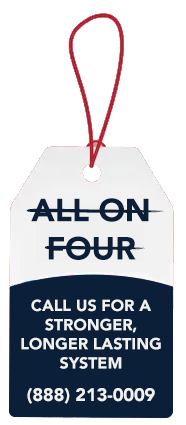6809 White Oak Ave Lake Balboa 91335 | Hours: Mon – Fri 8:45 AM – 5 PM | (888) 213-0009
TMJ Disorder
The Temporomandibular Joint is the structural system that connects the lower jaw to the skull. Located directly in front of the ear, this joint consists of muscles and bone that help with motion. Actions such as talking, and chewing are all made possible by the Temporomandibular Joint (TMJ).
People often experience a variety of symptoms with Temporomandibular Disorder. TMD or TMJ syndrome can become an issue if one has an autoimmune disease or injury to the area. This disorder can be painful and affect your ability to chew, speak, swallow, and even breathe.
TMJ Symptoms
Although more frequently seen in younger adults, this type of disorder can affect anyone. It can be painful, and the symptoms are often short-term or long-term. Due to the location, TMD can affect one or both sides of the face.
Symptoms commonly related to TMD are:
- Pain & Discomfort
- For sufferers of TMD pain can vary in intensity and location. Often the pain is experienced at a higher rate if you are chewing, speaking, or yawning. TMD can also be related to muscle spasms, migraines, and gravitate to the shoulders and neck.
- Tinnitus & Pressure in the ears
- TMD is commonly misdiagnosed as the symptoms can replicate those of an ear infection. Unfortunately, if not treated properly, this disease can lead to hearing loss in some individuals.
- Popping & Clicking Sounds
- Although treatment may not be required, TMD can cause a popping sound in movements such as those listed above. Clicking and popping sounds when chewing or popping may indicate the improper alignment of the jaw.
- Locking Jaw
- If the jaw becomes dislocated, it may be difficult or impossible to close your mouth.
- Painful Chewing
- Having problems chewing or if chewing becomes painful may be an indicator that your teeth are not lining up properly.
- Swelling
- Issues with TMD may cause swelling in the affected area.
- More Severe Symptoms are:
- Headaches
- Nausea
- Dizziness
- Vomiting
Although these symptoms seem minor, they can lead to more prominent and uncomfortable problems. From Chronic Headaches to fatigue, lower back pain, and even Fibromyalgia TMD can cause a wide array of serious medical concerns.
The Causes
It can be difficult to understand what is causing TMD for each person. As it results from issues with the jaw; we do understand some factors.
- Injury
- An injury that causes a dislocation or even whiplash can cause TMD
- Oral Habits
- Teeth grinding or clenching can disrupt the natural process of your jaw and joints, stress can exacerbate this
- Dental Procedures
- Procedures, where the mouth must remain in an unnatural state, may cause soreness
- Osteoarthritis
- Attacking joints, this disease can also affect the jaw structure
- Rheumatoid Arthritis
- An inflammatory disease that will affect the joints
- Cancer/Infections/Deformities
- Other factors that can contribute to TMD
Treatments such as medications, oral splints, and physical therapy may provide relief to those who are suffering this affliction. With TMJ dentist Dr. Kass will assess your symptoms and help you to find relief.
Contact us


